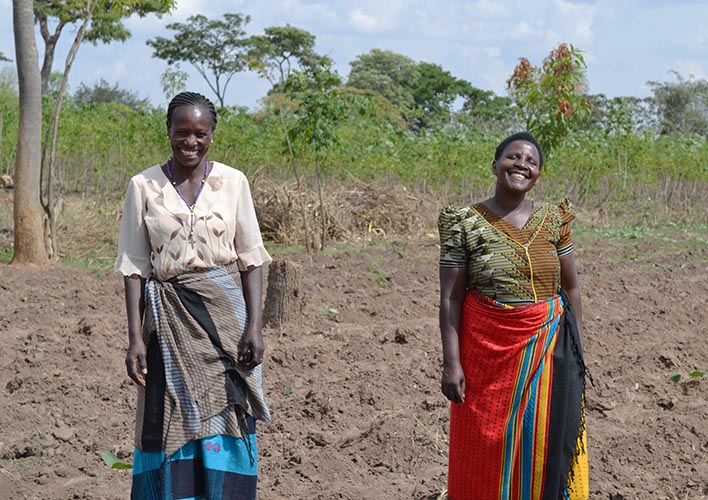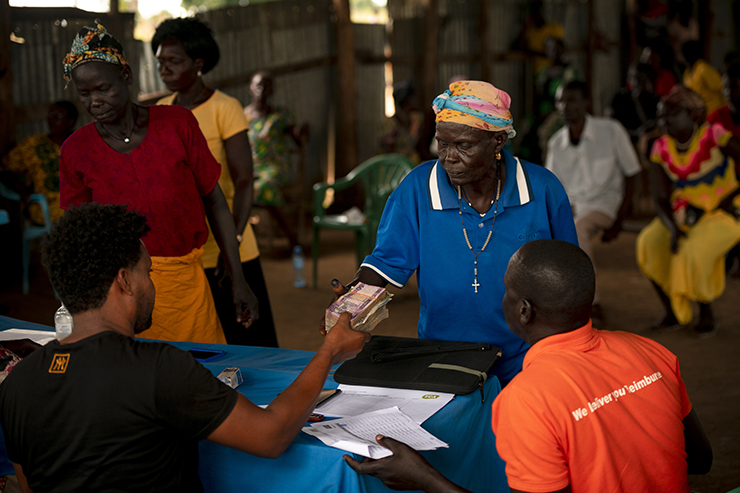Agness Manamba and Imelda Simon are farmers with adjoining fields in Tanzania improving life for their families through conservation agriculture. (Photo: Naomi Johnson)
Results include better moisture retention, increased yields
I met Agness Manamba and Imelda Simon one cloudy afternoon in their adjoining fields in rural Tanzania.
They told me of the poor rainfall that affects their crops—the maize, cassava, rice, sweet potato, and ground nuts they grow to feed their families.
“We see the clouds building up, and pray for rain,” says Imelda.
The two women have been farming since their childhood. It used to be that the rain would come with good regularity.
That’s no longer the case, though.
“The rains come later, and are no longer consistent throughout the season,” says Agness. “Sometimes, heavy rains flood the field, followed by drought.”
The two middle-aged women are forced to purchase more seeds and replant and hope the next crop grows well. The difficult weather patterns they deal with make earning an income and feeding their families stressful.
Through a project of Foodgrains Bank member World Renew, the women are being trained in conservation agriculture techniques to help them cope with the erratic rainfall. Conservation agriculture emphasizes minimal soil disturbance, crop rotations, mulching and cover crops. It helps keep moisture in the soil, making best use of limited rainfall. They also plant more sorghum—a crop well-suited to withstanding dry conditions.
It’s not a perfect solution, though. As the weather continues to increase in severity and extremity, families like those of Imelda and Agness will be among the most impacted. It doesn’t seem fair.
When given adequate support, farmers are paving the way to more sustainable farming practices, and can build resilience against the impacts of a changing climate.
—Naomi Johnson, Policy Advisor




